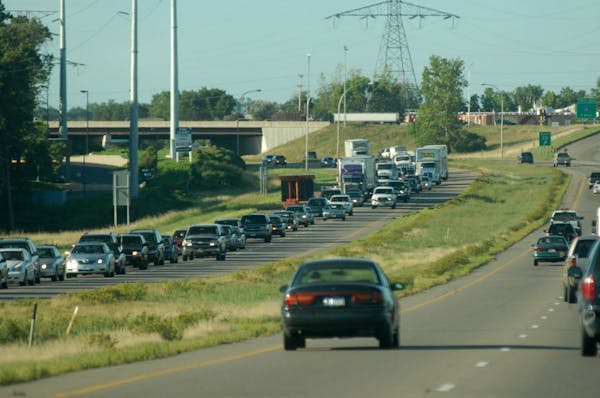During a spring in which almost anything seems possible, here's a headline you're not going to see: "Salt Lake City agrees to stop transit construction so Twin Cities can catch up."
Salt Lake City reported last week that its accelerated construction of five transit lines is saving it substantial money and that it has gathered more federal transit construction money per capita than any other city. And developers are flocking to Salt Lake — from other cities — as a result.
That's one of several reasons the Minnesota Legislature must act to fund transportation infrastructure investments this session.
Few issues arrive at the Legislature with such broad support. According to a poll conducted by the Minneapolis and St. Paul chambers of commerce this January, two-thirds of Minnesota voters support the proposed 0.5 percent metro-area sales tax for transit. The same poll showed that nearly 80 percent of Minnesotans agree the state would benefit from an expanded and improved public transit system.
The McKnight Foundation is part of a coalition of businesses and nonprofits that have invested in transit and that strongly support efforts to sustain and grow transit in Minnesota. Our support stems from our witnessing firsthand the powerful impact that transit has on our communities. Strong transit improves everyone's access to jobs and other important assets we use every day.
For decades, McKnight Foundation has championed the substantial strengths of the region to maintain a competitive edge. Strengthening our transit system will benefit both those who use it and those who don't, through decreased congestion, better air quality, and faster movement of products across the region and state.
As our economy continues to recover, local companies, including the 19 Fortune 500 companies that call Minnesota home, will be recruiting new talent, particularly young professionals who are seeking an urban lifestyle and better connectivity. Those recruits want transit. So do their employers. Greater MSP, which recruits businesses to the region, tells us that prospects want to see our map of funded new transit lines. Unfortunately, we don't have one.
To compete with other cities in business development, job creation and talent attraction and retention, we need to expand our transit. We know from record ridership on the Hiawatha light-rail line, and booming investment along the not-even-open Central Corridor line, that the Twin Cities benefits from connecting people to jobs with light-rail transit.
But our transit system remains undersized. We're not just behind speedy Salt Lake City. This year's Minneapolis Business Vitality Index compared us with nine peer regions. We were eighth in light-rail miles. And no city is waiting for us. If we want to remain a choice destination for tomorrow's employers and employees, we need to fund transit.
Now is the time for legislators to collaborate to build and improve our transit infrastructure, and deliver what the public says it wants.
Delay means sending jobs and money elsewhere. Let's get Minnesota moving.
---------------------
Kate Wolford is president of the McKnight Foundation, a Minnesota-based family foundation that granted $84.6 million in 2012, including $22 million to support sustainable regional development.
Ukraine aid vote is a domestic and geopolitical inflection point



